Business in Zambia, Lusaka. Zambian Economy

Zambia: largest exporter of copper (Foreign Trade). African Frontier Market
- Introduction to the Republic of Zambia (Southern Africa)
- Zambian Economy
- Foreign Trade of Zambia
- Zambian Customs Excise Act
- Zambia Free Trade Agreements
- Business and Investment Opportunities in Zambia
- Infrastructures
- Energy
- Agriculture
- Tourism
- Case Study:
- Zambian mining sector
- Zambeef Company
- Monica Katebe Musonda
- Multi-Facility Economic Zone (MFEZ)
- Access to the Zambian Market
- Business Plan for Zambia
The aims of the subject “Foreign Trade and Business in Zambia” are the following:
- To analyze the Zambian Economy and Global Trade
- To know the trade opportunities in Zambia
- To explore the Zambian trade relations with the country of the student
- To know the Zambian Trade Agreements
- To examine the profile of Zambian Companies
- To develop a business plan for the Zambian Market

The Subject “Foreign Trade and Business in Zambia” belongs to the following Online Programs taught by EENI Global Business School:
Doctorate in African Business, World Trade.
Master in Business in Africa, International Business, Foreign Trade.

Course: Business in Southern Africa.
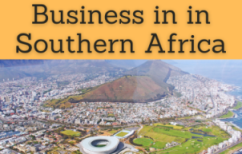
Languages:  or
or  Zambie
Zambie  Zambia
Zambia  Zambia.
Zambia.
- Credits of the subject “Doing Business in Zambia”: 1

- Duration: one week
Masters adapted to  Zambian Students.
Zambian Students.

International Trade and Business in Zambia.
Zambia is the largest African copper and cobalt exporter. Zambia is an African Frontier Market.

- Trans-African Corridors;
- Nearest ports:
- Port of Lobito (Angola) and Port of Luanda (Copper Corridor of Zambia)
- Port of Maputo (Mozambique, inland Port of Chipata)
- Port of Dar es-Salaam (Tanzania): by Railway
- Port of Durban (South Africa). Distance Port of Durban-Lusaka: 2,165 kilometers
- Port of Walvis Bay (Namibia). Via the Trans-Caprivi Corridor-Katima Mulilo Bridge
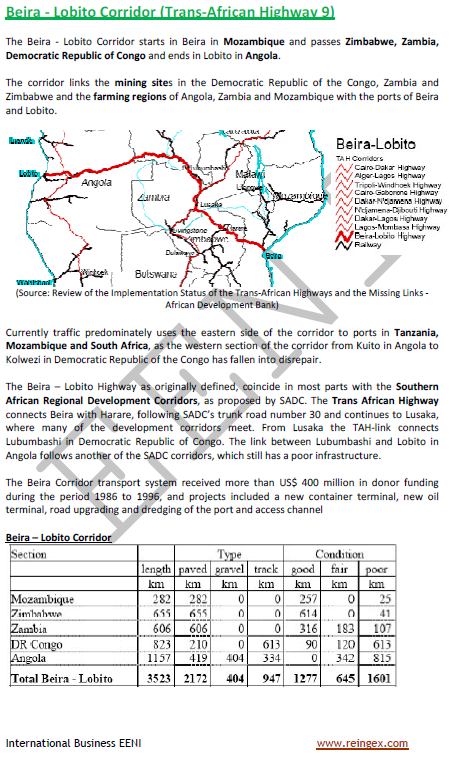


Zambian Preferential Access and Trade Agreements:
- Zambia and the Southern African Economic Area
- Common Market for Eastern and Southern Africa (COMESA)
- Southern African Development Community (SADC)
- EU-SADC Agreement
- COMESA-EAC-SADC Agreement
- African Continental Free-Trade Area
- The U.S.-Zambia
- AGOA (U.S.)
- COMESA-U.S. Agreement
- EU-Zambia
- Africa-EU Partnership
- EU-GSP
- Bilateral Trade Agreements with China, Canada, India, and Japan
- Conference on the Great Lakes

- WTO
- Agreement on Sanitary and Phytosanitary Measures
- GATS
- Agreement on Technical Barriers to Trade
- Agreement on Preshipment Inspection
- Agreement on Safeguards
- Trade Facilitation Agreement
- WCO
- COTIF Convention (Rail)
- BIC
- Chicago Convention (ICAO)
- International Maritime Organization
- Hamburg Rules (Sea)

- Economic Commission for Africa
- African Union
- AU Convention on Combating Corruption
- AUDA-NEPAD
- African Development Bank
- Africa-Asia Partnership
- Africa-India Cooperation
- Africa-BRICS
- Africa-Turkey Partnership
- Afro-Arab Cooperation
- BADEA
- Forum on China-Africa Cooperation

- WB
- WTO
- IMF
- UN
Zambia is a landlocked African Country.
- Zambian Population: 16.6 million people
- Zambia is one of the most highly urbanized countries in the African Continent
- Zambian Area: 752,618 km²
- Capital of Zambia: Lusaka (2 million people, 60% unemployed)
- Business in Lusaka, Kitwe and Chipata
- Zambian official language: English. 85 local languages
- Zambia shares borders with eight African Countries: Angola, Botswana, the DR Congo, Namibia, Malawi, Mozambique, Tanzania, and Zimbabwe
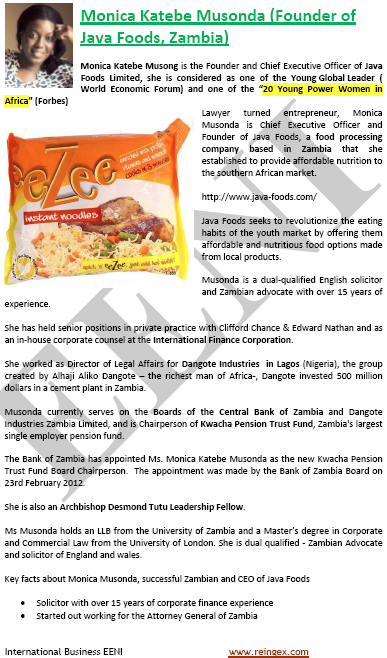
More information about Zambia (EENI African Business Portal).
Main Religions in Zambia:
- African Traditional Religions
- Christianity (75%), 4.5 million Methodist
- Baha'i faith

Zambia belongs to the Southern African Economic Area.

Global Trade and Business in Zambia:
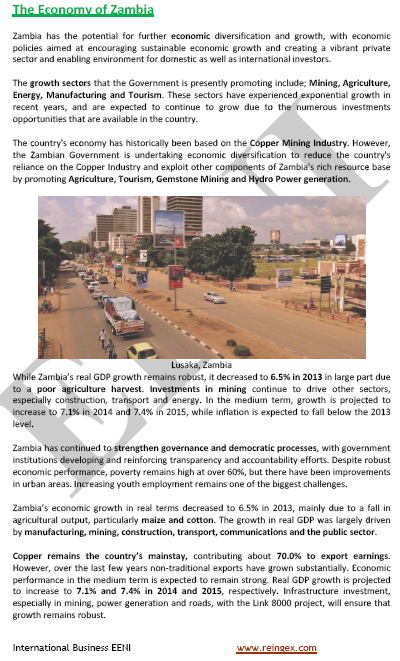
Economic Profile of Zambia.
- Zambian GDP growth rate: 6.5 (2013), 7.3% (2012), and 6.8% (2011)
- Main contributors to the GDP of Zambia: agriculture (12.2%), mining (8%), manufacturing (11.2%), and construction (13.0%)
- Zambia is a African frontier market
- Top Zambian sectors: Copper Mining Industry, agriculture, energy, manufacturing, and tourism
- Zambian GDP per capita 377 dollars
- Inflation rate: 7.3%
- Merchandise imports (% of the GDP): 39
- Merchandise exports (% of the GDP): 45
- Copper: 70% of the export earnings of Zambia
- Zambia: 20% of the World's emerald production
- Investment into Zambia: 4 billion dollars
- Legal System of Zambia: Common Law
- Currency of Zambia: Zambian Kwacha (ZMW) = 100 Ngwee
- Abundance of mineral deposits and water
- High transport costs (Landlocked country)
Zambian mining sector:
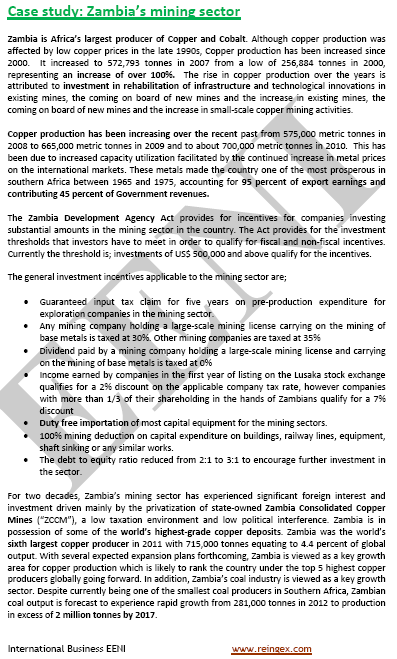
(c) EENI Global Business School (1995-2024)
We do not use cookies
Top of this page


